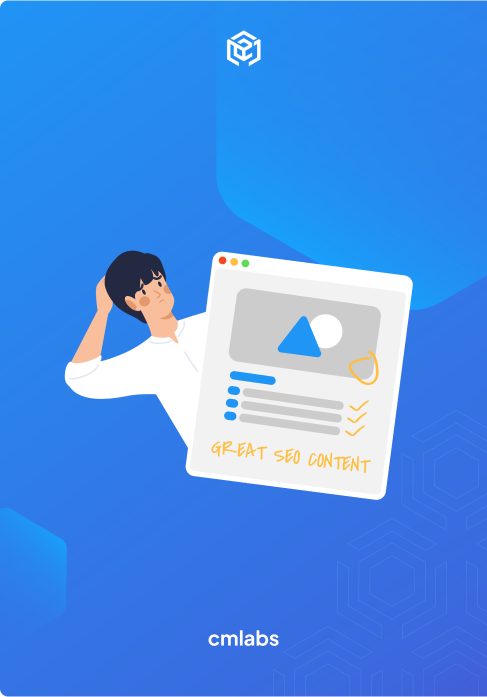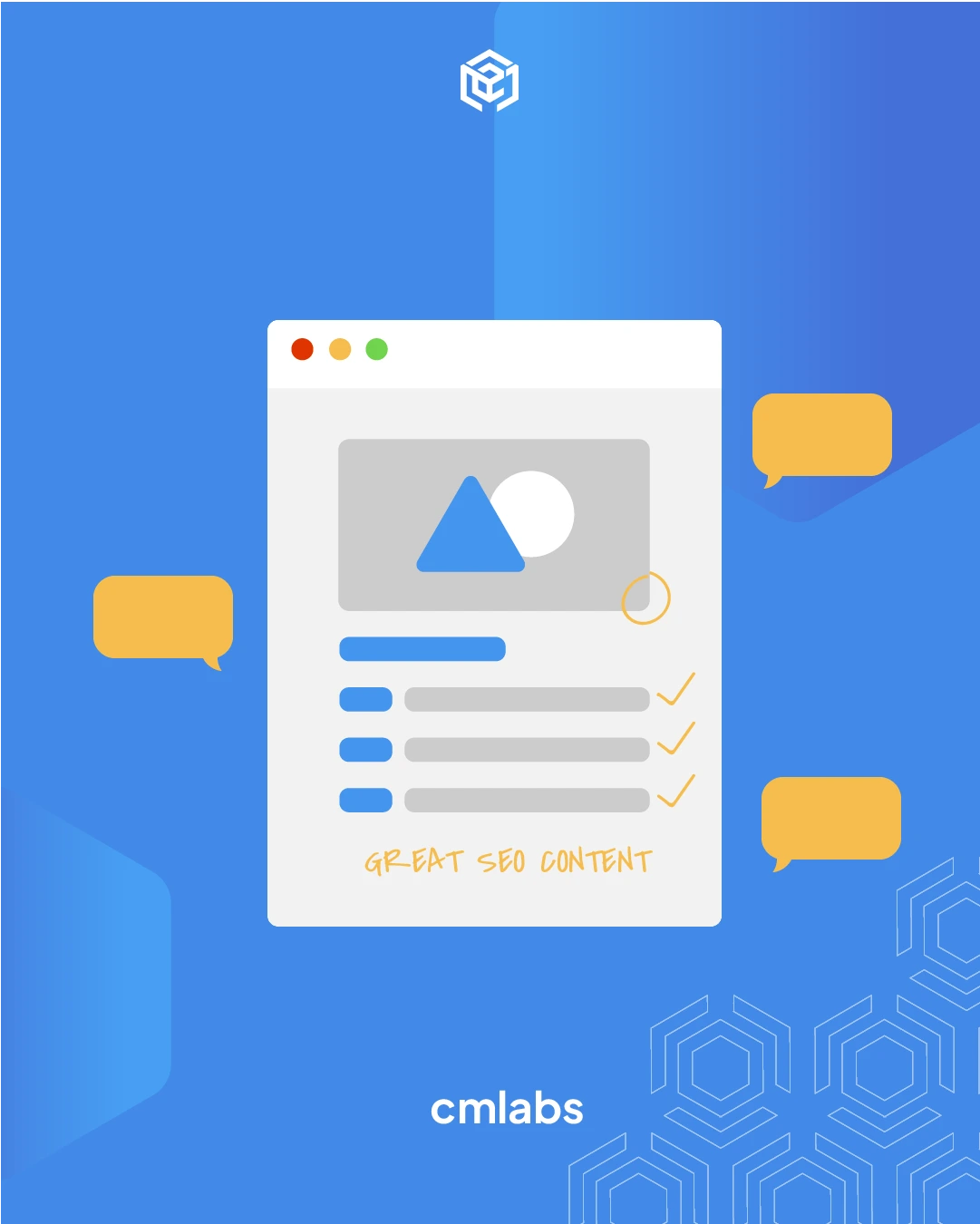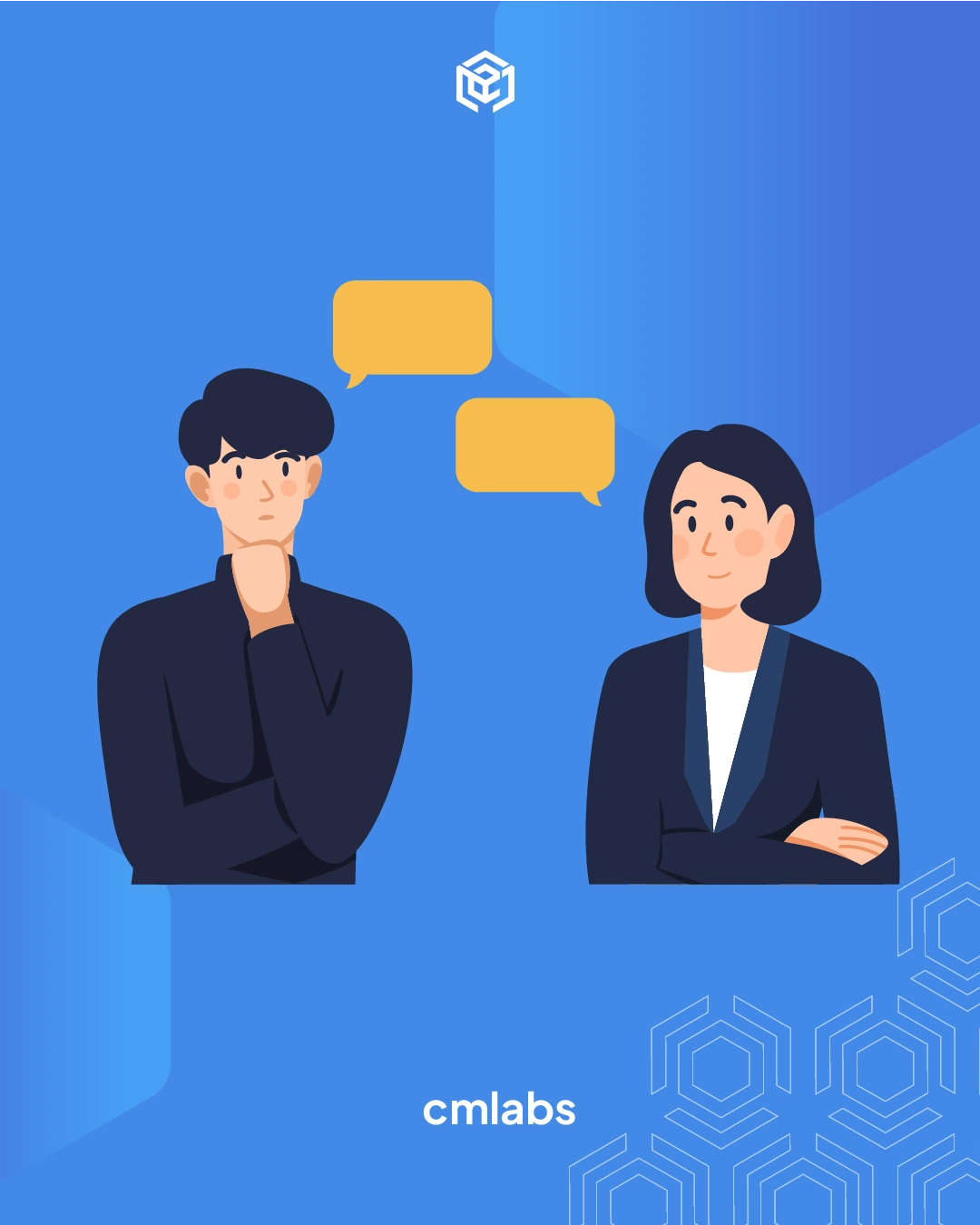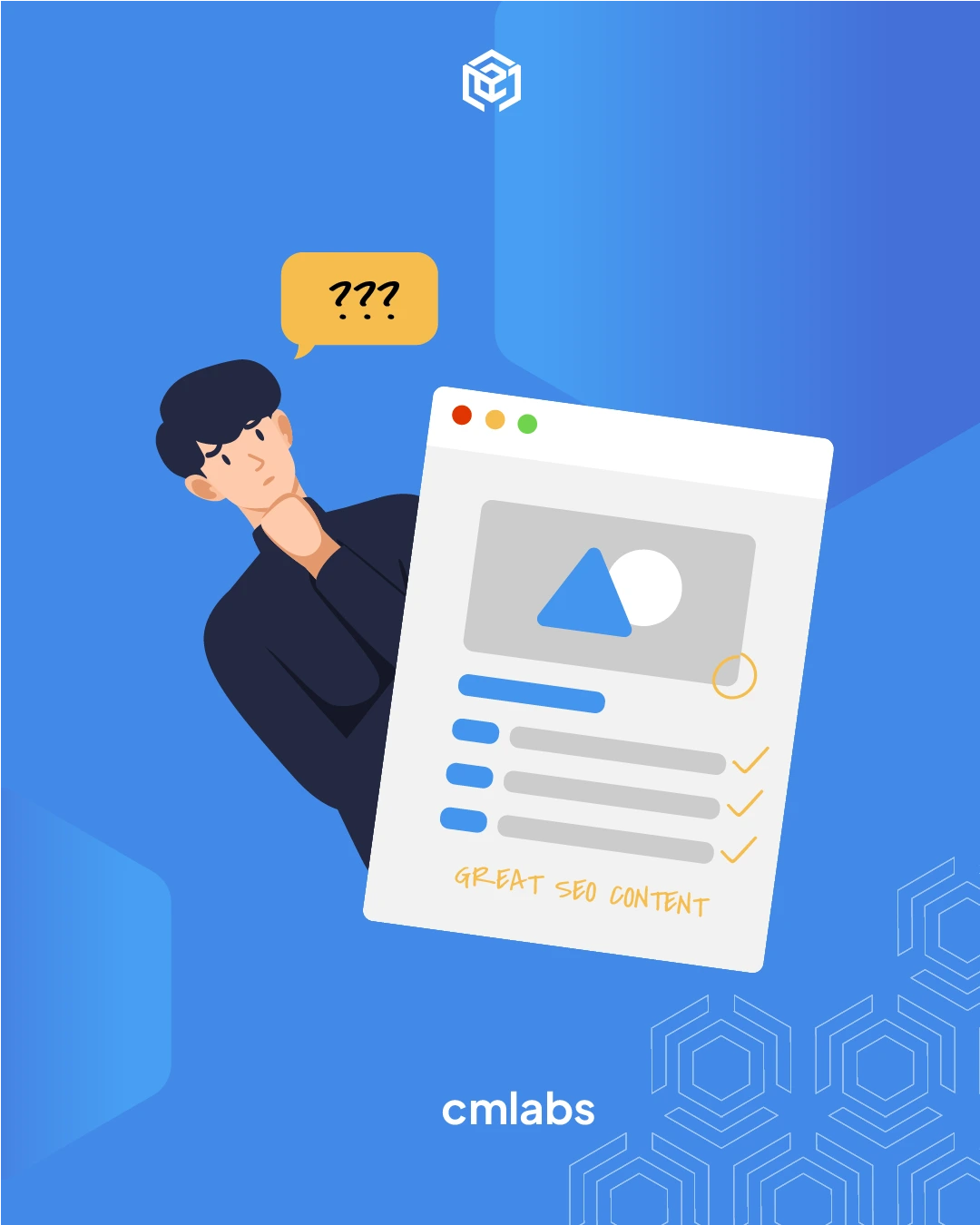We use cookies
This site uses cookies from cmlabs to deliver and enhance the quality of its services and to analyze traffic..
SEO SERVICES
Conduct in-depth technical website audits, strategically develop website projections, and increase your website authority.
ASO SERVICES
Elevate Your App’s Presence with Our Expert ASO Services – Boost Visibility and Drive Downloads!
WRITING SERVICES
We offer a variety of writing services to suit different business necessities. Reach broader audiences or lead specific industries? We've got you covered!
SEOlutions
A unified source of truth!
SEO & Digital Maternity Solution
SEO & Digital Maternity Solution: Leverage Cross-Platform Insights to Elevate Your Strategy with Expert Consultation
SEO & Digital Maternity Solution
Data Solution options:
Starting from Rp200 mio
Reinventing how a company get creative treatments
A new way to get your creative needs done. Agile team, efficient cost, and expedient way in a flexible yet scalable subscription plan!
Creative-as-a-Services
CaaS package options:
Based on Subscription
Pioneer in digital marketing software powerhouse
We’re excited to unveil our new range of Tech Solutions designed to drive your digital success. Whether you’re looking to enhance your website’s performance, streamline your tech stack, or unlock deeper insights from your data, we’ve got you covered.
Starting from Rp250 mio
Our Clients
Research and innovation center for digital transformation
Digital marketing combines technical skills and business knowledge at every stage. For marketing teams, improving budget management efficiency is crucial, as time is an invaluable resource that should be used wisely. At Sequence, we are dedicated to empowering you to optimize efficiency and strategic planning, ultimately enhancing the impact of your digital marketing efforts.
Subscription-based (IDR1,800/keyword)
Our Clients
BeyondSEO
References
SEO Tools for Webmasters
SEO Tools for Writers
SEO Tools
FIND THE SUITABLE PARTNERSHIP FOR YOUR COMPANY
Check out which cmlabs partnership program suits your company
WHITE LABEL SEO
for CorporateYour company is granted exclusive partnership rights to provide SEO services to our important clients, and we will provide a dedicated backend team to support your efforts.
AFFILIATE PROGRAM
for BizdevA new affiliate program is being introduced for skilled marketers and individuals with strong networks, offering commissions of up to 7% for generating profits independently.
DIGITAL AGENCY
for Marketing Partnerscmlabs is an essential partner for digital agencies, providing a unique selling proposition in Search Engine Optimization (SEO).
BACKLINK PARTNERSHIP
for Media / BloggerWe have a vast database of bloggers and media outlets across Indonesia, categorized by region and media type, giving our clients an edge in managing their media and SEO activities.
OFFICIAL TRAINING
We provide ongoing professional development and support to SEO professionals to ensure they are equipped to meet market demands.
JOIN AS CONTRIBUTOR
for Content WriterGreat opportunity for SEO Writers around the world. T&C applied!
ACADEMIC PARTNERSHIP
Through partnerships with universities in Indonesia, cmlabs has helped align academic curricula with industry demands.
Partnership
Sector & Industries
Tell us your SEO needs, our marketing team will help you find the best solution
As an alternative, you can schedule a conference call with our team
Schedule a Meeting?Contact
Survey
We use cookies
This site uses cookies from cmlabs to deliver and enhance the quality of its services and to analyze traffic..
Last updated: Aug 24, 2022
Google is known to use multiple algorithms to filter high-quality content on search result pages. One of them is called Google Panda. Other than Google Penguin, the Panda algorithm has been used to filter low-quality content since 2011.
The release of the algorithm itself is initiated by the failure of the Caffeine system, which worsens the quality of Google searches. After being officially released on February 23, 2011, Panda managed to eradicate low-quality content and put informative content on the highest rank on the SERP.
By using the Panda algorithm, Google hopes to put original content written by experts at the top of the SERP. With this method, users can get information based on trusted sources and it can be accounted for.
With the Panda algorithm, Google wishes that content makers focus on quality rather than putting their content at the highest rank on the search result pages. Google hopes that a high-quality website can give the best user experience by providing informative content and gaining traffic organically.
In the world of SEO, it needs to be known that reaching the highest position on the SERP should not always be the main goal of creating content. In this case, the Google Panda algorithm acts to filter plagiarized content and those that are irrelevant to the search terms.
In other words, a website with low-quality content often gets hit by the Panda algorithm. Generally, several factors that can make a website penalized by Google are as follows:
A website page that includes irrelevant information usually becomes the main target of the Panda algorithm. In general, content that includes unclear references and can not be accounted for may confuse users as it causes misinformation.
Duplicate content is typically found on multiple pages of a website. You probably will not realize there are pages containing the same information. If there are no changes or modifications to the content, the Panda algorithm will flag it as plagiarized and issue warnings to the website.
The Panda algorithm usually targets websites that have low authority. In this case, Google will consider that the content comes from unverified sources.
Hence, a website must try to publish high-quality content that matches its niche. It needs to be done so that Google considers such a website to have the authority to discuss the topic that fits the niche.
Google will penalize websites that publish low-quality content in large numbers. Therefore, you must prioritize quality over quantity to avoid such penalties.
Pages that include irrelevant information about the search can be hit by the Panda algorithm. Usually, the information provided in the content does not match with what was promised.
In general, the Panda algorithm will decide which ones are quality websites and which ones are not based on Google’s standards. Sites that get hit by this algorithm will usually suffer a decrease in traffic volume at the beginning.
As time passes by, the website or page’s rank on the SERP will decrease as well. Such an event is related to the time of the algorithm update. Even so, not every decrease in rank is caused by the Google algorithm itself.
Make sure to evaluate the website’s performance in-depth by using Google Search Console first. Information related to the issues faced by the website can be seen in the result of the analysis. With that, you can see if the drop in performance and the issues on the website have anything to do with the Panda update.
In optimizing websites, Panda is often called an update that is difficult to recover from. Even so, it does not mean that the website that gets hit keeps dropping in performance for an undetermined time.
The Panda algorithm only targets low-quality content that manages to reach the top of the SERP. The way to recover from it is to improve the quality of the content and website alike. To do that, you can follow several steps to solve the Google Panda update, which are:
Use commands, such as noindex, nofollow to avoid duplicate content issues
WDYT, you like my article?
Couldn't find result for "Mulki" try to search with different keyword
Suggestion:
Tell us your SEO needs, our marketing team will help you find the best solution
As an alternative, you can schedule a conference call with our team
Schedule a Meeting?



cmlabs Jakarta Jl. Pluit Kencana Raya No.63, Pluit, Penjaringan, Jakarta Utara, DKI Jakarta, 14450, Indonesia
(+62) 21-666-04470These strategic alliances allow us to offer our clients a wider range of SEO innovative solutions and exceptional service.

Psst! Hey there, SEO Stats and Tools SEO company! If you've ever planned of conquering the Australia market, you've come to the right place!